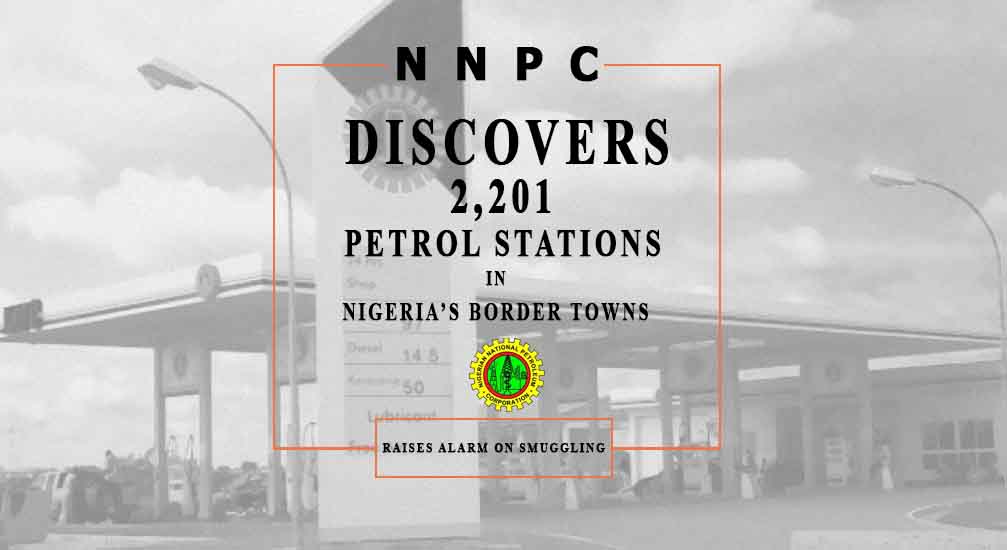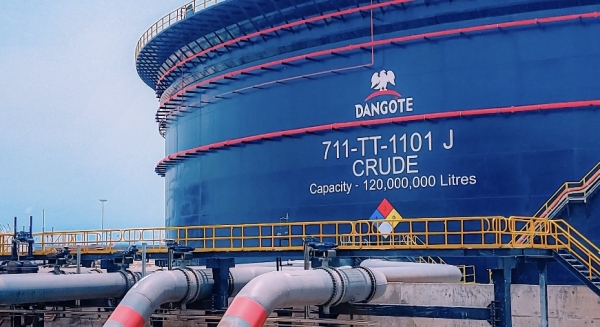The Nigerian National Petroleum Corporation (NNPC) in an unexpected incidence discovered that there are 2,201 petrol stations in Nigeria’s porous border towns and coastal frontiers, with a combined fuel tank capacity of 144.9 million litres.
The shocking discovery prompted NNPC to raise the alarm that an unprecedented cross-border smuggling of petrol to neighbouring nations is rife, making it complex to sanitise the fuel supply and distribution matrix in the country.
The Corporation is worried that despite spending over $5.8 billion to import petrol since December 2017, it continues to lose N744 million daily.
NNPC Group Managing Director, Dr. Maikanti Baru, while leading a top Management team of the corporation on a visit to the Comptroller General of the Nigerian Customs Service, Col. Hameed Ali (Retd), on 2nd March, disclosed that detailed study performed by the corporation indicated strong link between the presence of the frontier stations and activities of fuel smuggling syndicates.
Dr. Baru mentioned that the nefarious activities of the smugglers had led to a recent observed unusual surge in the evacuation of petrol from less than 35 million litres per day to more than 60 million litres daily, which is in sharp contrast with established national consumption pattern.
Providing a detailed presentation of the findings, the NNPC GMD informed that 16 states, having amongst them 61 Local Government Areas (LGAs) with border communities, account for 2,201 registered fuel stations.
The fuel tank, he noted, had a joint capacity of 144, 998, 700 (one hundred and forty-four million, nine hundred and ninety-eight thousand and seven hundred) litres of petrol.
In the same vein, eight states with coastal border communities spread across 24 LGAs amongst the states account for 866 registered fuel outlets with combined petrol tank capacity of 73, 443, 086 (seventy-three million, four hundred and forty-three thousand and eighty-six) litres.
A further breakdown of the finding shows that among the states with land border, three LGA’s in Ogun State, account for 633 fuel stations with combined petrol tankage of 40, 485,000 litres while nine LGA’s in Borno State, has 337 fuel outlets with combined petrol storage capacity of 21, 114, 480 litres.
Lagos with one LG as border community has 235 registered fuel stations with overall petrol storage facility of 19,916, 600 litres.
On the coastal front, Lagos with six LGA’s leads with 487 registered fuel stations with a combined inbuilt storage capacity of 50, 239,560 litres.
Akwa Ibom with 5 LGAs has 134 registered retail outlets with the capacity to store 8, 322, 986 litres, while Ondo State with two LGA’s has 110 fuel stations with the capacity to store 3,871,320 litres.
Dr. Baru explained that owing to obvious differential in petrol price between Nigeria and other neighbouring countries, it had become lucrative for the smugglers to use the frontier stations as a genuine medium for the smuggling of products across the border, saying this had resulted in a thriving market for Nigerian petrol in all the neighbouring countries of Niger Republic, Benin Republic, Cameroun, Chad and Togo and even Ghana which has no direct borders with Nigeria.
“NNPC is concerned that continued cross-border smuggling of petrol will deny Nigerians the benefit of the Federal Government’s benevolence of keeping a fixed retail price of N145 per litre despite the increase in PMS open market price above N171 per litre," he stressed.
He noted that based on the heightened petrol consumption rate of 50 million litre per day, the corporation was incurring an under-recovery of N774 million daily.
Reacting, Col. Ali commended the team and beckoned on them to tackle the issue of price differentials which is the underlying motivation for smuggling activities. He also assured that the elaborate data provided on the fuel supply situation would enable the service fashion out the appropriate architecture to combat the menace.






















